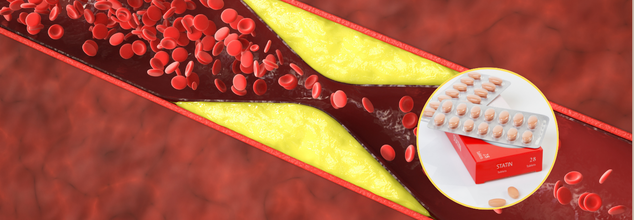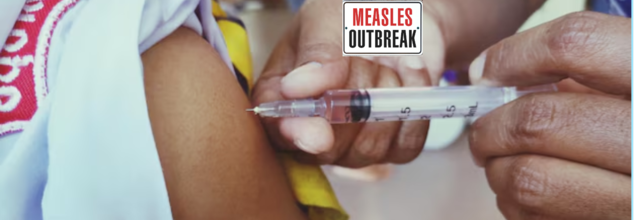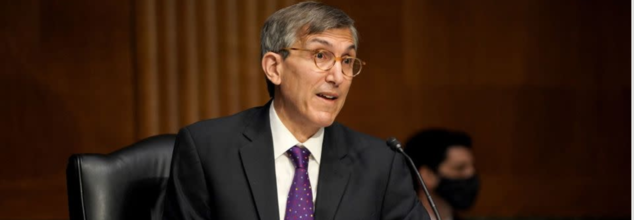
Cholesterol- Lowering And Statin Drug Combo Could Cut Fatalities By 49%, Saving Thousands Of Lives, Study Finds
Cardiovascular diseases remain the number one cause of death across the world, claiming an estimated 18 million lives every year. Although statins have been the first line of treatment for reducing cholesterol levels for years. They achieve this by suppressing an enzyme in the liver that is used to make cholesterol, thus lowering low-density lipoprotein cholesterol (LDL-C), or 'bad' cholesterol. Statins are not enough for some patients, though, and this is where ezetimibe steps in.
According to a study in the Mayo Clinic Proceedings, a combination of two cholesterol-lowering medications—statins and ezetimibe—may save thousands of lives every year by cutting heart attacks, strokes, and other cardiovascular events by half. This study contradicts the traditional practice of prescribing statins alone and recommends the use of combination therapy immediately in high-risk patients.
Ezetimibe has a different mode of action than statins as it inhibits the absorption of cholesterol in the gut, complementing the effect of the statins. The new research uncovers that prescribing both drugs concurrently from the start, instead of adding ezetimibe subsequently, yields considerably superior results for high-risk patients with cardiovascular disease.
The largest study ever conducted, it pooled data from 14 earlier trials involving 108,353 patients. These patients were at 'very high' risk of developing a heart attack or stroke, or had already developed one. The results strongly support the need to modify treatment strategies in high-risk patients.
The study discovered that the patients who underwent the combination therapy had a 19% lower risk of dying from any cause. There was also a 16% decline in cardiovascular death, which pointed to the substantial effect of the therapy on the heart. The study further found that the major adverse cardiovascular events, such as heart attacks and strokes, decreased by 18% and 17%, respectively. These findings reinforce the effectiveness of combining cholesterol-lowering drugs in reducing mortality and preventing life-threatening cardiovascular complications.
LDL-C levels dropped significantly more in those receiving the combination treatment, increasing the likelihood of reaching the target level of under 70mg/dL by 85%.
Traditionally, statins alone have been prescribed for years, and the physician would later evaluate if extra medicine is required. But based on the findings of the study, physicians ought to prescribe the two drugs at once to those patients who are high-risk patients. This change can save more than 330,000 deaths a year across the globe, including almost 50,000 fatalities in the United States alone, says the study's lead author, Prof. Maciej Banach from Poland's John Paul II Catholic University of Lublin.
This study is conclusive that combination cholesterol-lowering therapy must be entertained forthwith and must be the treatment of choice for very high-risk patients following an acute cardiovascular event," said Prof. Peter Toth, one of the authors of the study.
The strategy not only has the potential to save lives but may also lead to substantial cost savings for healthcare systems through decreased hospitalization and complications from untreated cardiovascular disease. Prevention of heart failure, recurrent strokes, and other catastrophic events would reduce the economic burden of long-term cardiac care.
How Does The Drug Combination Affect Treatment for Cardiovascular Diseases?
High levels of LDL-C contributed to 4.5 million deaths in 2020 independently, with most deaths occurring in Eastern Europe and Central Asia. With the prevalent nature of cardiovascular disease worldwide, implementing combination therapy as the mode of treatment might have far-reaching advantages.
Since statins and ezetimibe are already on the market in clinical practice, implementation of these findings should be relatively easy. Scientists hope that this evidence will be followed by a revision of medical guidelines, motivating healthcare professionals across the globe to become more proactive.
The authors of the study emphasize the need for changing current treatment regimes. Doctors are urged to begin patients on combination therapy immediately, and not to wait and observe whether statins alone can work. Immediate and forceful treatment might be the difference between life and death for thousands of people every year.
"Our results emphasize the wisdom of the saying 'the lower the better for longer,' but also the not-less-important 'the earlier the better' in the treatment of high-risk cardiovascular patients," Toth said.
For individuals, this news is a wake-up call to talk with their healthcare provider about cholesterol control strategies. Knowing the value of combination therapy and fighting for full treatment options could have a major impact on long-term health.
The new evidence is a strong argument for the routine application of combination therapy in controlling cholesterol levels for patients at risk. With a solid body of evidence in favor of its application, physicians everywhere are encouraged to implement this treatment to cut the death toll from cardiovascular disease. As guidelines continue to change, the universal use of this practice could be a new dawn for the prevention of heart disease, saving half a million lives each year.

Credits: Canva
A New Citrus Oil Formula Can Solve Dry Mouth Problem In Cancer Patients
A new formula which is made with citrus oil could help cancer patients to relieve their dry mouth. Dry mouth is a common and one of the painful side effect of radiation treatment.
Dry mouth is called xerostomia, which is a common side effect of cancer treatment, especially radiation therapy to the head and neck. In fact, some chemotherapy trugs too can damage the salivary glands and reduce saliva production.
Researchers from the University of South Australia and Stanford University created this formula by mixing limonene, a citrus oil which is found in lemons, limes, and oranges. The oil has healthy fats known as lipids. The research has been published in the International Journal of Pharmaceuticals.
When mixed, the oil gets easily absorbed in the body and reduces the common side effects like dry mouth and stomach pain.
What Do The Trials Say?
In the lab tests, the new mix was 180 times more soluble than pure limonene. Even in the earlier trials, it increased absorption in the body by more than 4000%.
Dry mouth or xerostomia, affects up to 70% of patients who get radiation for head and neck. It can also make speaking and swallowing very difficult and can lower quality of life.
“Cancer patients undergoing radiotherapy and other medical treatments regularly experience dry mouth, which not only prevents them from comfortably swallowing, but can also have other negative and potentially life-threatening outcomes,” said co-researcher Leah Wright, a professor of chemical engineering at The University of Adelaide in Australia.
More About Limonene: It has been long known to help with saliva production. However, high doses were needed for it to work well. The doses though did cause side effects like indigestion and "citrus burps". Clive Prestidge, lead author, and head of Nanostructure and Drug Delivery research group at the University of South Australia says that the new formula solves that very problem.
“The therapeutic benefits of limonene are well known. It’s used as an anti-inflammatory, antioxidant and mood-enhancing agent, and can also improve digestion and gut function. But despite its widespread use, its volatility and poor solubility have limited its development as an oral therapy,” Prestidge said.
Wright also added that even though limonene can be ingested directly, it cannot be tolerated, especially for people who have dry mouth. It has poor absorption, which prevents it from effectively reaching the salivary glands.
“This inventive and highly impactful limonene-lipid formulation could provide a simple, effective oral solution for dry mouth, offering cancer patients long-lasting relief and comfort, improved oral health, and a higher quality of life during a difficult time,” Wright said.
Is Dry Mouth Common?
It affects around 1 in 5 people and the risk of it increases with age. One of the most common symptoms is feeling that your tongue is sticking to the roof of your mouth.
Other common symptoms include:
- Bad breathe
- Constant sore throat
- Difficulty eating, speaking or swallowing
- Dry feeling in your nose
- Hoarseness
- Increased thirst
- Lip, tongue and mouth sores or pain
- Taste disorders
- Trouble wearing dentures
- Tooth decay
- Dry eyes and skin
- Skin rash
- Joint pain

Image Credit: Freepik
Measles Outbreak Rages On With Nearly 500 Infected Across 19 U.S. States, CDC Shares Warning
A major measles outbreak has gripped the United States, with close to 500 confirmed cases in 19 states. The Centers for Disease Control and Prevention (CDC) has issued a stark warning regarding the fast spread of the highly infectious virus, especially in regions with low vaccination rates.
The outbreak seems to have turned into an epidemic, which started in Texas, New Mexico, and Oklahoma, has now spread across state lines, with cases reported in Mexico as well. There are 400 cases in Texas alone, making it the center of this dire surge. Undervaccination and global travel are feared by health officials to be driving the crisis, with even more cases on the horizon for the next few weeks.
As of Friday, 29 March 2025, the U.S. had 483 reported confirmed measles cases in 20 jurisdictions as of 2025. This represents a dramatic jump from the 285 cases reported for all of 2024.
The CDC reports indicate a troubling trend in the current measles outbreak, with 97% of the infected being unvaccinated or of unknown vaccination status. Alarming is the fact that 75% of the cases reported are among those under the age of 19, which shows the susceptibility of younger groups. A minimum of 70 individuals have been hospitalized with serious complications, which indicates the severity of the outbreak. One death caused by measles has also been confirmed in Texas, while another death in New Mexico is still under investigation. Medical professionals say that the actual infections could be much more, as there are a number of cases that go undetected or misdiagnosed, which could further let the virus spread.
Why Is Measles Spreading So Quickly?
Measles is also one of the most contagious airborne illnesses, spreading by coughing and sneezing. A single infected individual can infect 90% of unvaccinated people nearby. The virus can also persist in the air and on surfaces for two hours after an infected individual has left the room.
Health officials attribute the outbreak of measles to:
Waning Vaccination Rates – Many recent cases have occurred in communities where measles-mumps-rubella (MMR) vaccination rates fall below the recommended level. Some parents still decline or delay vaccination, risking their children and communities.
International Travel – Measles is more prevalent in regions of Africa, Asia, and Europe, and unvaccinated travelers can transmit the virus to the U.S.
Delayed Medical Treatment – Most instances are undiagnosed or not reported early, which leaves the virus uncontrolled.
The state of Texas is the worst affected state with 400 reported cases to date, up to March 28. It has been discovered that the spread has been traced from Gaines County bordering New Mexico's Lea County where there have been 44 confirmed cases. Mexico also reported linked cases of the virus, sending an international scare.
In Kansas, 23 cases have been reported by officials, most of which were in unvaccinated children. Other states, such as Ohio and Pennsylvania, have also seen individual cases that could be linked to the Texas outbreak.
Can People Who Are Vaccinated Still Contract Measles?
Although measles vaccines are very effective, no vaccine is 100% perfect. A few percent of fully vaccinated people can still get measles, although symptoms are much less severe.
For instance, in Pennsylvania's Bucks County, an adult who was fully vaccinated recently tested for measles positive after a trip to Texas. His symptoms were mild, and he was less likely to pass on the virus than a non-vaccinated person.
How Effective Is the Measles Vaccine?
Health professionals highly advise two doses of the MMR vaccine to defend against measles. One dose offers 93% immunity, while two doses offer 97%. The vaccine was key in eradicating measles in the U.S. by 2000. Despite this, declining levels of vaccination over the past few years have resulted in a revival of the disease, leading to outbreaks in several states.
Role of Anti-Vaccinators in the Outbreak
The anti-vaccine movement has largely contributed to measles outbreaks. Parental refusal of vaccination, caused by misinformation and vaccine hesitancy, created clusters of people who were unvaccinated and in which measles spread unchecked.
Even Robert F. Kennedy Jr., a prominent vaccine critic, conceded the gravity of the outbreak but still doubts vaccine safety. Health experts, on the other hand, stress that scientific data strongly attest to the safety and efficacy of the MMR vaccine.
Measles is a serious health complication-causing disease, especially in young children, pregnant women, and those with weakened immune systems. The usual complications are:
Pneumonia – The major cause of death due to measles.
Encephalitis (inflammation of the brain) – May result in permanent brain damage.
Blindness and deafness – In a small number of cases, measles may result in vision and hearing loss.
Severe malnutrition and dehydration – Especially among young children.
Can This Deadly Outbreak Be Stopped?
Health officials emphasize that prevention of measles is best achieved by vaccination. The CDC and state health departments are increasing efforts to:
- Expand MMR vaccine availability in affected areas.
- Educate the public on the risks of measles and the need for vaccination.
- Track and monitor new cases to avoid further transmission.
- Encourage early medical assessment for individuals with symptoms of high fever, cough, runny nose, red eyes, and rash.
The current measles outbreak is a grim reminder of the risks of undervaccination. With almost 500 cases and increasing fears of international spread, health authorities call for swift action to stem the crisis.
Vaccination is still the strongest weapon against future outbreaks. As the number of cases continues to increase, the call for robust public health policies, correct information, and active vaccination campaigns has never been more pressing.

Image Credit: Canva
Top Vaccine Scientist Dr. Peter Marks Ousted From FDA- Will This Shake-Up Put Vaccine Safety At Risk?
Dr. Peter Marks, one of the top FDA's leaders in vaccine regulation, is stepping down from his position as director of the Center for Biologics Evaluation and Research (CBER). His departure has sparked a debate about the future of vaccine regulation and public health policy. Marks was instrumental in leading vaccine approvals, including during the pandemic brought on by COVID-19. As the FDA makes decisions along this transition, experts wait and monitor how it could potentially affect vaccine safety and public trust.
As the head of the Food and Drug Administration's (FDA) Center for Biologics Evaluation and Research (CBER), Marks Marks played a crucial role in ensuring vaccine safety and efficacy, especially during the COVID-19 pandemic. With his announced departure, concerns are mounting over about the future of vaccine regulation in the U.S. and its potential to affect global public health.
Dr. Peter Marks' Resignation or A Forced Exit?
Dr. Marks' April 5 resignation was not voluntary, according to several sources. He was reportedly told: resign or get fired. His exit occurs under the tenure of Health and Human Services (HHS) Secretary Robert F. Kennedy Jr., a highly publicized vaccine critic.
In his resignation letter, Marks expressed deep concern about the direction of vaccine oversight under Kennedy, writing that undermining confidence in vaccines is "irresponsible, detrimental to public health, and a clear danger to our nation’s health, safety, and security." His letter further suggested that scientific integrity was at risk, accusing Kennedy of prioritizing misinformation over truth and transparency.
Since 2016, Marks has served as the head of the FDA's CBER division, guiding the approval of life-saving vaccines, such as the expedited development and authorization of the first COVID-19 vaccines under Operation Warp Speed. His work introduced mRNA technology into vaccines, which have transformed vaccine development and are being investigated for use against a variety of diseases other than COVID-19, including influenza and cancer.
Under his direction, the FDA also approved the first self-administered flu vaccine, offering a new level of protection against flu season. His time at the agency has been characterized by a focus on scientific integrity and transparency, which experts now worry will be undermined.
Kennedy's Anti-Vaccine Influence
Kennedy has been among the loudest anti-vaccine voices, often issuing inflammatory and widely discredited statements. He has challenged the safety of the COVID-19 vaccine and has been a leading force in attempts to undermine public confidence in vaccination campaigns. In 2021, he submitted a citizens petition requesting that the FDA withdraw COVID-19 vaccine authorizations, deeming them "the deadliest vaccines ever made."
His distrust of COVID-19 vaccines is not an isolated incident. Kennedy has also questioned the measles-mumps-rubella (MMR) vaccine, despite the U.S. experiencing the biggest measles outbreak since 2019. During a recent interview, he asserted that the MMR vaccine "does cause deaths every year," something refuted by the Infectious Disease Society of America, which has identified no deaths attributed to the vaccine in healthy people.
Will Vaccine Safety Be Compromised?
Public health officials are sounding the alarm that Marks' resignation could result in a radical change in vaccine regulation and policy. The FDA's CBER branch regulates not only vaccines but also blood products, gene therapies, and allergenic products. Any loss of its regulatory authority could have sweeping implications.
Issues regarding Kennedy's leadership will result in studies that will misleadingly associate vaccines with autism, a theory consistently disproven by scientific studies. Professionals caution that future research may misleadingly imply a connection between vaccines and autism, which could heighten public fear, reduce vaccination rates, and trigger further disease outbreaks.
Also, Dr. Ashish Jha, dean of the Brown University School of Public Health, characterized Marks' ouster as a loss for the FDA. "To push him out makes the FDA immensely weaker, less effective. This is not how we make America healthy," he posted on X (formerly Twitter).
The Risk of Public Health Setbacks
Marks' resignation can't have happened at a more important time. The U.S. is reeling from the increasing rate of vaccine-preventable diseases. The current multistate outbreak of measles, with its ferocity in Texas, highlights the severity of sliding vaccination rates. According to a report by the World Health Organization (WHO), more than 100,000 unvaccinated children have died last year in Africa and Asia as a result of complications related to measles. These numbers are a hard reminder of how devastating things become when misinformation surrounding vaccines spreads.
At the same time, HHS has allegedly requested the Centers for Disease Control and Prevention (CDC) to reexamine the vaccine-autism connection, in the face of overwhelming scientific agreement that no such connection exists. The action further stoked concern that Kennedy's power might result in policy that negates a half-century of scientific advancement.
What's Next for the FDA and Public Health?
With Marks' departure, the FDA will have a vacuum of leadership at a moment when public health institutions' trust is already weakened. His replacement will have to contend with upholding scientific integrity while dealing with pressures from an administration that seems more and more politicized to counter anti-vaccine sentiment.
The next few months will tell if the FDA can resist political pressure and remain committed to its mission of safeguarding public health. For the moment, experts are calling for caution, stressing the need to protect the scientific standards that have long shaped vaccine regulation in the U.S.
Marks' exit is not simply a house-cleaning in bureaucratic circles—more importantly, it signals a possible turning point in how vaccine science is weighed, approved, and disseminated to the general public. Will this be a catalyst for public health disaster or not, the struggle for vaccine science is just beginning.
© 2024 Bennett, Coleman & Company Limited

